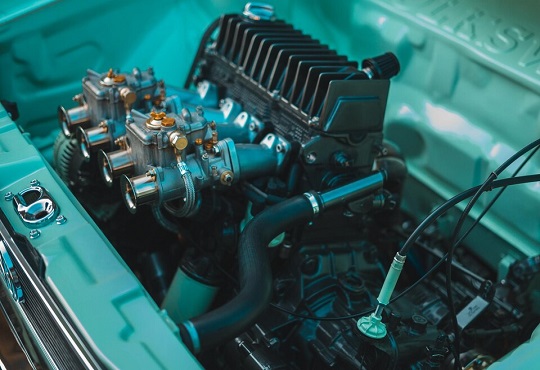Hyundai's Green Engine Testing Tech Cuts Over 2M kg CO2
CIOTech Outlook Team | Monday, 23 June 2025, 11:21 IST

- Cold bed testing prevents over 2 million kg of CO2 emissions.
- HMIL saves nearly USD 1 million in operational costs through sustainable testing.
- Fully electric system enhances precision using renewable energy and smart sensors for testing.
Hyundai Motor India Limited (HMIL) has reached a significant milestone in eco-friendly manufacturing, successfully testing over 4.25 million engine units using its pioneering cold bed engine testing technology. Introduced in 2013, this innovative method eliminates the use of fuel, coolant, and water, replacing traditional fuel-based testing with a fully electric, zero-emission system powered by renewable energy. This approach marks a first in the automotive industry, delivering both environmental and operational benefits.
The cold bed testing process involves placing engines in dedicated stations where electric motors rotate the crankshaft. One of the key features of an advanced sensor is that it monitors the critical performance parameters, such as crankshaft angle, engine compression and chamber pressure to ensure that every unit is of high quality in line with Hyundai standards. The non-fuel technology makes testing more accurate and results in safer conditions in the workplace and accelerates the test, aligning with Hyundai to achieve global carbon neutrality in 2045.
Also Read: Vietnam Enacts First Law to Boost Digital Tech Industry
HMIL’s adoption of cold bed testing has prevented over 2 million kilograms of CO2 emissions, significantly reducing its environmental footprint. The company also reports operational cost savings of nearly USD 1 million, demonstrating the financial viability of sustainable practices. The fully automated system integrates Industry 4.0 protocols, enabling smart manufacturing and digital data storage for ongoing research and product improvement. Engineers can analyze long-term trends, further refining engine performance.
This milestone echoes HMIL as it strives to be sustainable and innovative when it comes to its leadership in the automotive industry. By the use of renewable energy and the latest technological advances, Hyundai is now establishing a new benchmark to be environmentally responsible on one hand and high-quality production on the other hand.



.jpg)
